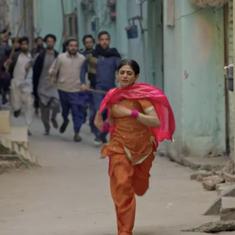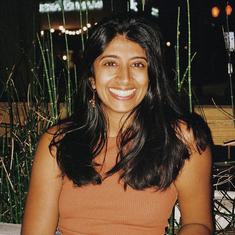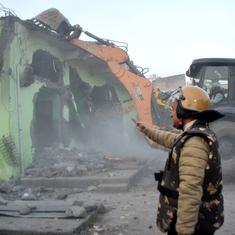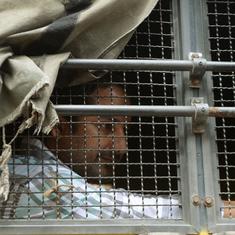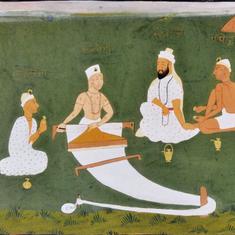As I walk up to I-League club Royal Wahingdoh’s astroturf-covered Polo Ground No. 1, a barricaded structure identified by the All India Football Federation as the MFA Turf (short for Meghalaya Football Association) in its Under-18 I-League teamsheets, a group of young men spread across various age groups and clad in pale yellow jerseys with the word “WISE” written across the front are being put through the paces by their coach.
The temperature is in the upper 10s at nine in the morning. It’s a teensy bit chilly and a smattering of clouds mean that there are near-perfect conditions for a game of football and, by association, training as well.
It was on this ground, referred to by the locals as simply “No. 3”, that numerous talents who have graced Indian football in the recent past – Aiborlang Khongjee, Sena Ralte, Reagan Singh, Zodingliana, Rupert Nongrum – have been trained, honed and nurtured. The list also includes two 24-year-old Manipuris, Jackichand Singh and Seityasen Singh. More on them later.
I walk in to the ground to see a man in a tracksuit viciously berating someone, presumably a youngster, for not turning up for training. He then explains to Wahingdoh’s head of youth development that the boy scouted for the U-16 team will turn up tomorrow.
My impression of Anju Thakuri softens when I see him play a game of keep-the-ball with Wahingdoh’s youngest kids. He even attempts and pulls off a ridiculous backheel, provoking guffaws from the kids; Thakuri himself joins in on the laughter.
Later, as we head out to have a cup of tea outside the ground, the veteran scout talks about the time when two very special youngsters from Manipur came to the Army Boys Sports Company at the Gorkha Training Centre in Shillong for a trial in 2005, while he was also the head coach there. “I know those two (Jackichand and Seityasen) really well, since they were this tall,” he says, gesturing with his hand.
“Jacki wasn’t a winger back then but he was definitely the most talented of the lot. He started off as a central midfielder. His distribution, vision and tackling were great for a player of his age and I selected him immediately. Seitya played as a forward and did decently to get picked, but six to seven months after we had inducted him, he started scoring a lot of goals,” reminisces Thakuri.
Once a forward in the Army, Thakuri started coaching the Boys Sports Company team after earning his Asian Football Confederation ‘C’ licence in 2004, and had been in the role of head coach, a gig he retired from recently to take the place of a scout at Royal Wahingdoh.
His BSC team were possibly the one of the most dominant school teams in the country, having started with an Under-14 Subroto Cup victory, with Jackichand, the player of the tournament, at the centre of it. “However, what very few people know is that they gave away the award to two people that year, a rarity,” Thakuri says. “They simply couldn’t pick Jacki over Seitya!”
A couple of years later, Jackichand did win a solo player of the tournament award at the U-17 Administrator’s Challenge Cup held in Chandigarh, to go with the title as well. However, BSC fell just short of winning the U-17 Subroto Cup that year. “We lost by a solitary goal to a team that we beat by three goals in the group stage. Jacki’s shot hit the post, too, but we couldn’t score.”
The ex-Army striker remembers Jackichand as an expressive character, always “talking to his teammates and spurring them on”, but at the same time very “reserved and focused on the game.” Seityasen, he says, was the quieter of the two, but he would later go on to captain Royal Wahingdoh.
When asked about Jackichand’s inconsistency, Thakuri agrees. “It is a delight to watch him in full flow but he seems to have too many off-days after he left Wahingdoh. But then even Sunil Chhetri has off-days.”
I've nothing against Jackichand but he is the Ozil of #Indianfootball, either he is imperious or he goes completely missing 😑😑#KEBvAFC
— football news india (@fni) January 7, 2017
At the age of 18, the boys of BSC, which is governed by the Sports Authority of India, get drafted in to the Army, sometimes to play for the Services team. But the two youngsters, who had initially joined for an assured job in the armed forces, reneged and told Thakuri that they wanted to play football at the highest level, a decision that he is grateful for. “What a waste of talent that would have been!”
The duo would then go on to join Mawshubuit, a club in the Shillong Football League’s second division, where their exploits that helped the club get promoted did not go unnoticed as they were promptly signed by Royal Wahingdoh. Winning the Shillong Premier League opened the doors to the I-League second division, which Wahingdoh would win in their fourth attempt. The club, thus, qualified for a maiden I-League campaign in 2014-’15, when they took everyone by surprise and finished third.
Jackichand, who won the I-League’s player-of-the-season award to add to the list of his individual honours, starred along with Seityasen as they scored five and six goals respectively in a memorable campaign for the Shillong-based club in Indian football’s top tier. Sizeable Indian Super League contracts followed, but Wahingdoh chose to pull out of the 2015-’16 I-League, citing uncertainty over the league’s future. Thakuri says that he advised the players to move out at that moment. “I felt happy that they were performing well for the club, but with talent like that, they had to play in the top tier.”
As our conversation comes to an end, the photo-shy scout allows me to click a group picture, which he insists must be with the youth coaches from the club. As we talk about the great school team that he once coached, I ask him if there was anyone better than the Manipuri duo. “A lot of talent that goes into the Army gets wasted. Some members of that team could have been I-League players, no doubt. But even in that bunch, those two were the exceptionally gifted ones.”
This story is a part of The Field’s series called “Goal for India”. Read the first story here.
